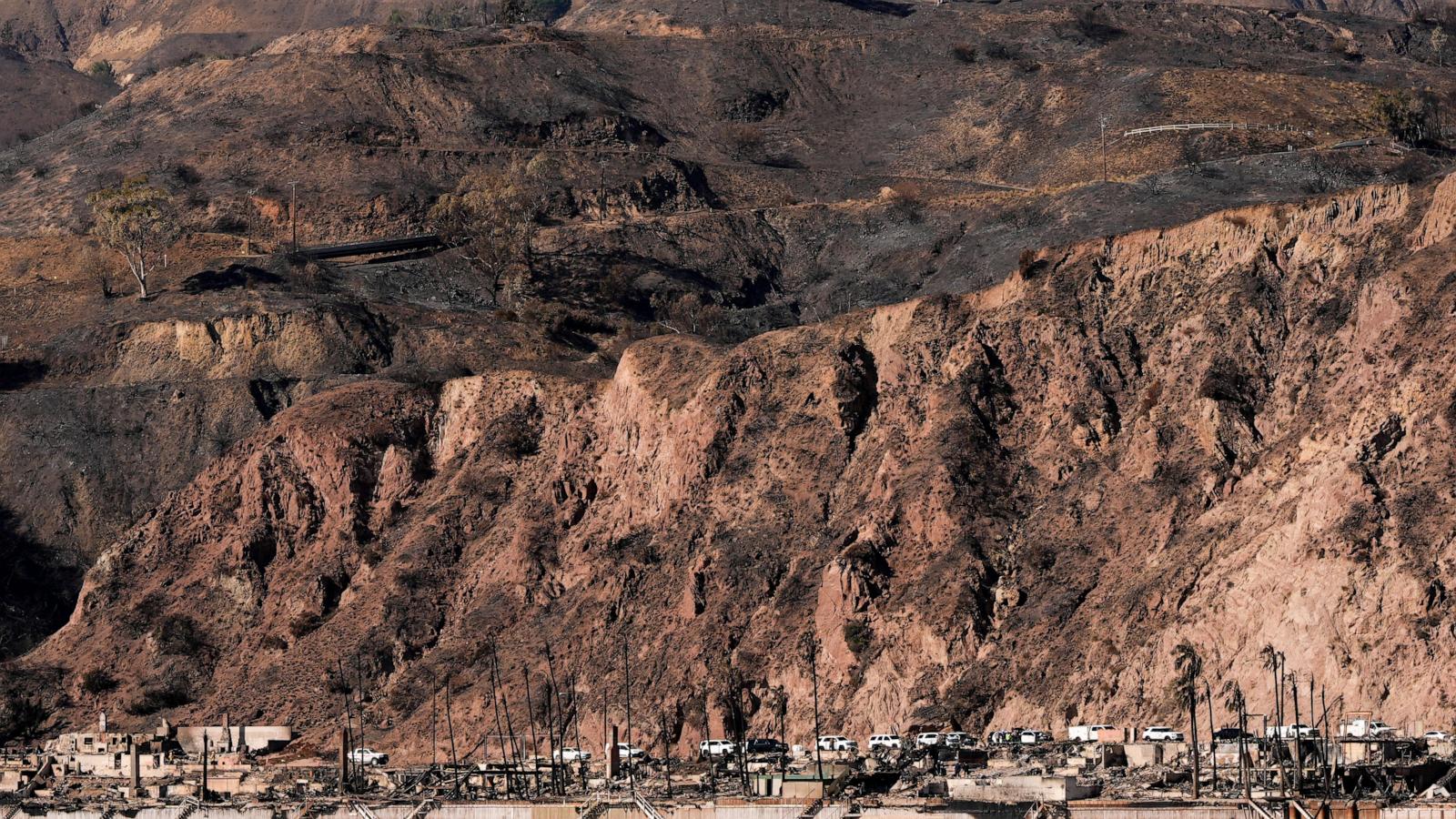California Wildfires: Newsom Prioritizes Disaster Relief Amidst Political Turmoil
The recent devastating wildfires in California have forced Governor Gavin Newsom to shift gears, prioritizing disaster relief over impending legal battles with the incoming Trump administration. Newsom's balancing act is a delicate dance between addressing the immediate crisis and bracing for potential policy challenges from the White House. This dramatic shift has ignited controversy, forcing Newsom to navigate a complex political landscape even as he strives to bring aid to wildfire victims. Let's dive into the details!
Navigating Disaster and Political Fallout: Newsom's Balancing Act
Following the devastating wildfires near Los Angeles, Governor Newsom is now faced with a massive challenge that requires immediate attention. The destruction is immense; thousands of homes are reduced to ash and smoke billows over the land. Meanwhile, the impending change of political leadership in the federal government also necessitates immediate action.
Trump's Criticism and Newsom's Response
Adding fuel to the flames, President-elect Trump criticized Newsom's handling of the situation. These criticisms were directed towards not only the state's handling of the immediate crisis, but also toward water policies and environmental management. Newsom, however, has countered the criticism by inviting President-elect Trump to witness the magnitude of the destruction firsthand. A request he made with hope of finding some common ground during this human tragedy.
California's Financial Commitment
California has allocated significant financial resources to manage the disaster. One billion dollars is dedicated to immediate relief efforts and disaster clean-up. The addition of another 1.5 billion dollars to wildfire prevention and overall natural disaster preparation demonstrates the State's intent to manage similar catastrophes better in the future.
A Political Storm Amidst the Flames
Even with California's considerable financial commitment to wildfire relief, political considerations continue to simmer beneath the surface. The state initially planned to use much of this funding to challenge potential policy reversals coming from the White House. However, the severity of the fire's impact quickly changed the political narrative. The Legislature swiftly expanded the state's special session to prioritize immediate funding for wildfire relief amidst growing criticism. In the face of a shared crisis, both Democrats and Republicans seem to be united in support of providing immediate funding for relief and recovery.
The Political Fallout of Ignoring the Disaster
The choice to divert state funding towards addressing the potential conflicts with Trump's administration instead of immediate disaster response drew widespread criticism from Republicans. Senator Roger Niello underscored that the dual focus, of protecting California from potential federal actions and ignoring the immediate disaster response needs, was ill-advised. His perspective mirrors many residents that are desperate for recovery efforts. The severity of the destruction left even political opponents unified in supporting immediate disaster response initiatives.
Divided Priorities: Legal Battles vs. Wildfire Relief
Balancing the need for legal defense against potential policy challenges coming from Washington D.C., while addressing the massive devastation and immediate recovery needs required careful planning and allocation of resources. The decision was also driven by the desire to avoid divisive issues that may divide state efforts and support. The decision was heavily criticized by lawmakers of both parties and from many in the state that viewed ignoring disaster relief needs in lieu of political conflicts as damaging and misguided.
The Path Forward: Rebuilding California and Defending Against Legal Challenges
The special session will take place to address critical legislation aimed at bringing effective recovery, addressing long term prevention efforts, and to balance other urgent matters relating to protecting California from potential political conflicts that may stem from challenges brought against various policies by the incoming Trump administration.
Immediate Priorities: Immediate Needs and Long-Term Planning
Legislators agree that immediate efforts focus on aiding those affected by the blaze, providing resources and essential services. Lawmakers are emphasizing housing, ensuring connections to relevant services, and managing the environmental contamination from the fire.
In the longer term, the streamlining of permitting processes for construction projects and promoting quick recovery for disaster stricken areas remains a legislative priority.
The Human Toll: Individual Stories
Assemblymembers, like Celeste Rodriguez, and Assemblymember Jacqui Irwin from disaster stricken areas highlight the immediate challenges. These representatives are working closely with local residents while simultaneously pressing for appropriate and effective government assistance programs. Many districts are home to a vulnerable immigrant community at further risk in the event of additional policy changes coming from the White House. Assemblymember Irwin was quite vocal about the need for governmental agencies to cut through typical red tape and ensure that permits, approvals, and access to disaster funds arrive rapidly in the stricken communities. In some cases residents even approached these legislators to secure critical needs like phone charging capabilities for vital communication and infant milk warming efforts.
Take Away Points
- California's wildfires have created a monumental disaster and recovery process.
- Governor Newsom's approach to balancing political and disaster response needs requires careful navigation of a complex political landscape.
- Balancing budgetary appropriations and addressing potential challenges with the incoming presidential administration will test California's leadership.
- Ensuring immediate assistance to the displaced and the affected populations remains the key to a sustainable recovery process.
- Addressing both short and long term objectives requires collaborative approaches from all levels of government and its leadership.









